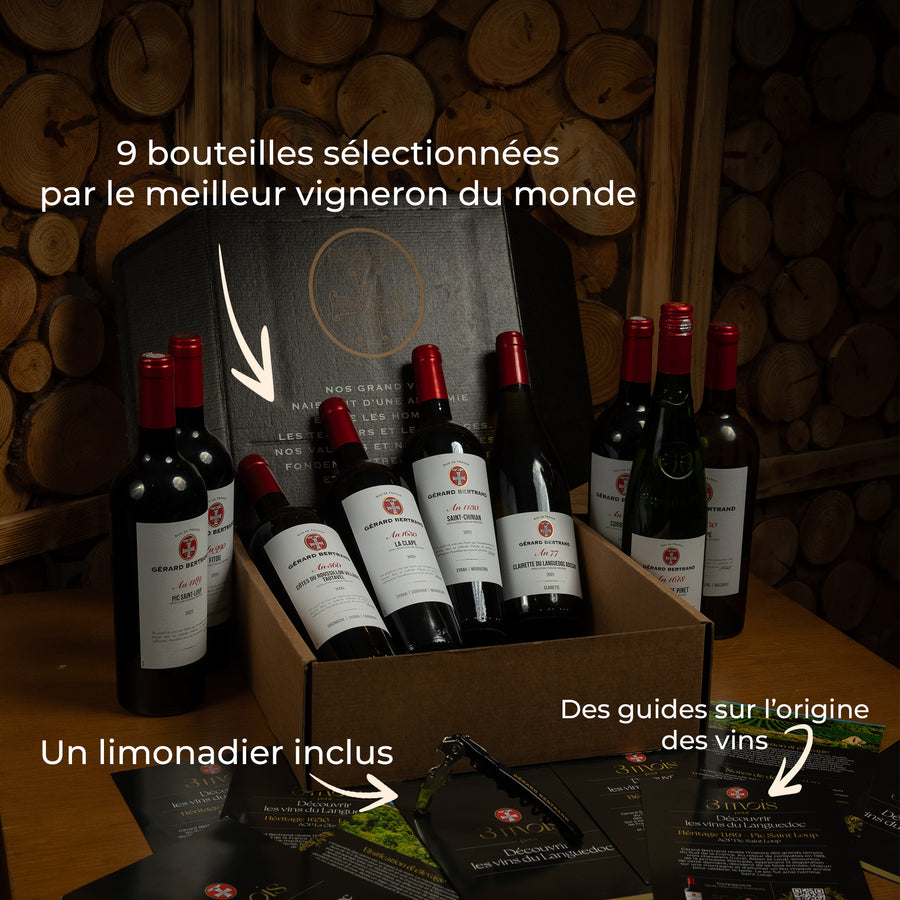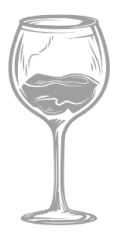The guide to our organic certifications

Beyond the quest for excellence in each bottle, Gérard Bertrand wines are distinguished by a series of certifications that demonstrate its commitment to sustainability, respect for the environment and ethics. If you are a little lost between all the different certifications, here is a guide to understand what a label implies in viticulture and winemaking.
Certified Organic: A Commitment to the Earth
Reconciling the production of excellent organic wines and respect for nature is a strong commitment for the company. Today, the world leader in organic wines, all of our vineyard plots are at least AB certified.
-
What is organic wine?
An organic wine is a wine made according to the principles of organic farming, i.e. without herbicides, GMOs and other chemical fertilizers . This involves applying these principles to the entire winemaking process, from growing the vine (viticulture) to transforming the grapes into wine (vinification). An organic wine is made from grapes that are themselves certified organic, as well as all the additions (inputs) necessary for the proper transformation of the grapes into wine (yeasts, fining products, etc.).
Obtaining the “AB” organic label requires compliance with strict specifications established by the European Union (Regulation No. 203/2012).
Recently, the CAB (Conversion to Organic Agriculture) label has appeared and makes it possible to identify winegrowers in the Occitanie region who have undertaken the process of transforming their vines into organic farming.
-
What are the advantages of organic wine?
The main advantage of a quality organic wine, just like a biodynamic wine, is that it expresses the full potential of the fruit. The grape, by being respected during its development, delivers all its flavors.
It is generally noted that organic wines , when they are of quality, deliver finer and more delicate flavors than a traditional wine. The balance of flavors is remarkable, it is a wine that is built less on alcohol than a traditional wine.
Another typical taste characteristic of organic Languedoc wines is their minerality . The explanation? An untreated grape is much more concentrated in trace elements and minerals. This is what allows, when tasting the wine, to find this mineral, fresh, almost saline flavor, especially for white wines.
Discover the entire range and collection of organic wines from Gérard Bertrand.
Certified Biodynamic: A Holistic Approach
If organic farming and its “AB” label are known to all today, biodynamic wine and its “ Demeter ” label are much less so. And yet, biodynamics is a method of cultivation that pushes the concept of “ all natural ” even further than organic.
This method of cultivation seeks symbiosis with nature with the primary consequence of no longer needing to use chemicals to protect it (pesticides) or feed it (fertilizers). Biodynamics also takes into account the influence of the planets, and in particular the lunar calendar.
Furthermore, unlike traditional wines and organic wines, a biodynamic wine receives very few oenological inputs during the vinification phase.
The Demeter label
Today, while many winegrowers pride themselves on practicing biodynamic cultivation of their vines, only obtaining the Demeter label can certify compliance with strict and totally transparent specifications. Present in 53 countries, it takes up the specifications of the Organic label by adding more stringent measures . Demeter wines therefore have the de facto organic label “AB”.
Biodynamic agriculture, through the Demeter label, thus represents a higher level of requirement in terms of respect for a more natural and artisanal manufacturing process. This is particularly the case for Clos d'Ora (organic red wine and Demeter), and Clos du Temple (organic rosé wine and Demeter), two estates cultivated in biodynamics producing an exceptional wine and using animal traction (a mule) to work the soil.
Discover the entire range and collection of biodynamic wines from Gérard Bertrand.
Certified Vegan: An Ethical Choice
The “ Vegan” label assures the consumer that no animal products have been used during the wine design process . Products commonly used during wine production (gelatin, egg white, casein, etc.) particularly during the “clarification” phase are completely prohibited.
This approach is in line with our brand's ethics, offering an animal rights-friendly option to wine lovers. Vegan wines are the ideal choice for those looking for a taste experience without ethical compromise.
Discover the entire range and collection of “Vegan” wines from Gérard Bertrand.
Bee Friendly Certified: Pollinator Preservation
The “ Bee Friendly ” label highlights producers with environmentally positive growing practices that respect and integrate bees and pollinators into their crops. Bee Friendly certified wines are a statement of intent to protect wine ecosystems.
Discover the entire range and collection of “Bee Friendly” wines from Gérard Bertrand.
No Added Sulfites: Authenticity and Purity
At Gérard Bertrand , we have thus acquired sufficient experience and understanding of our grape varieties in order to protect our wine from oxidation in a natural way, without resorting to the addition of sulfites.
The " No Added Sulfites " certification demonstrates the desire to produce pure wines, highlighting the authentic character of the terroir. The absence of added sulfites meets the expectations of consumers looking for more natural wines while preserving the freshness and quality of the vintages.
Discover the entire range and collection of “Sans Sulfites” wines from Gérard Bertrand.
















Leave a comment